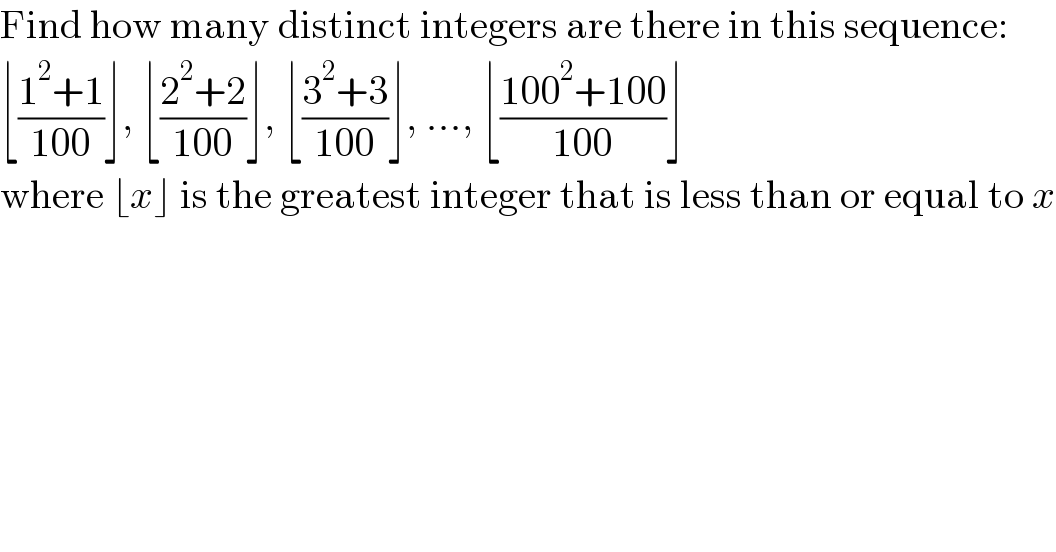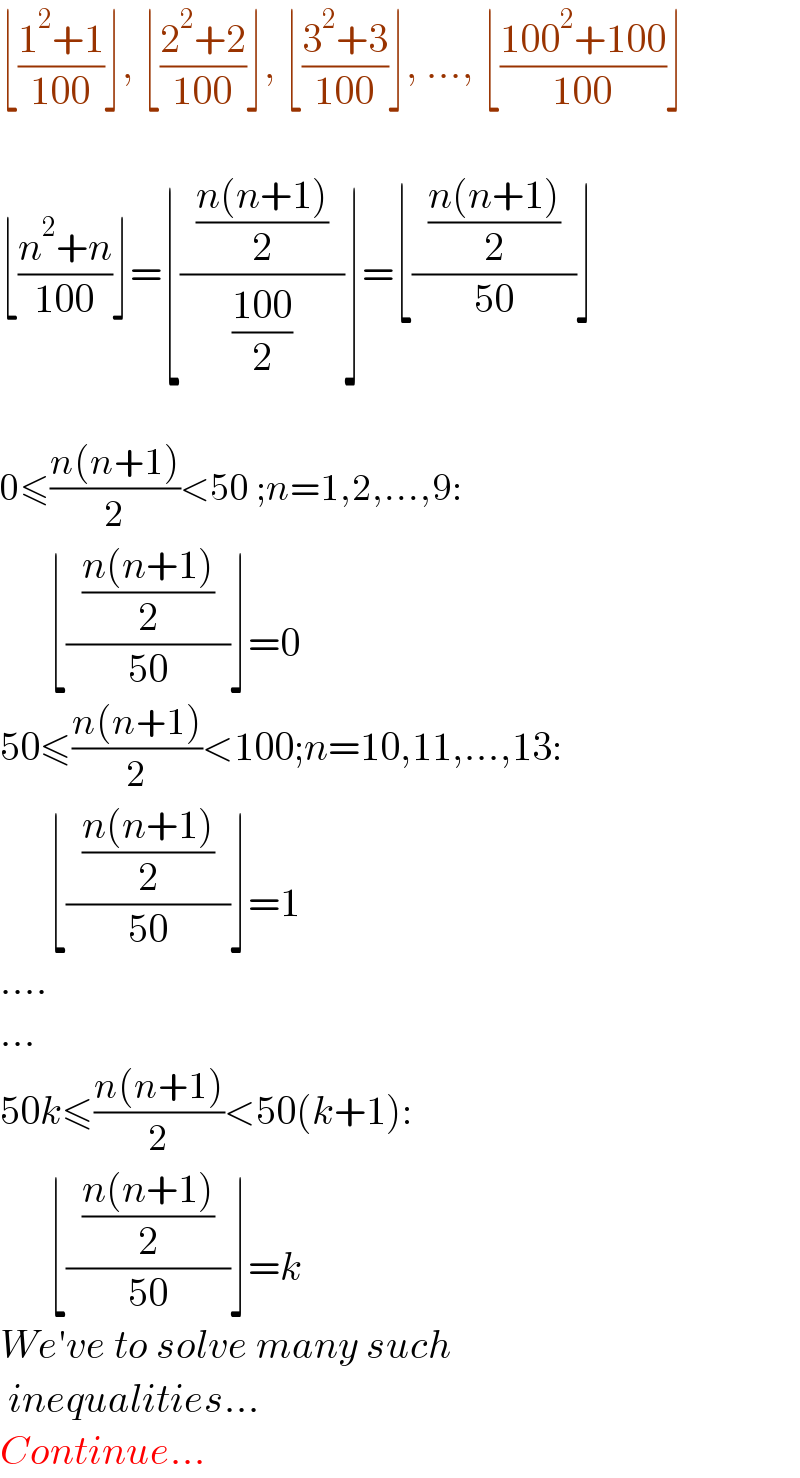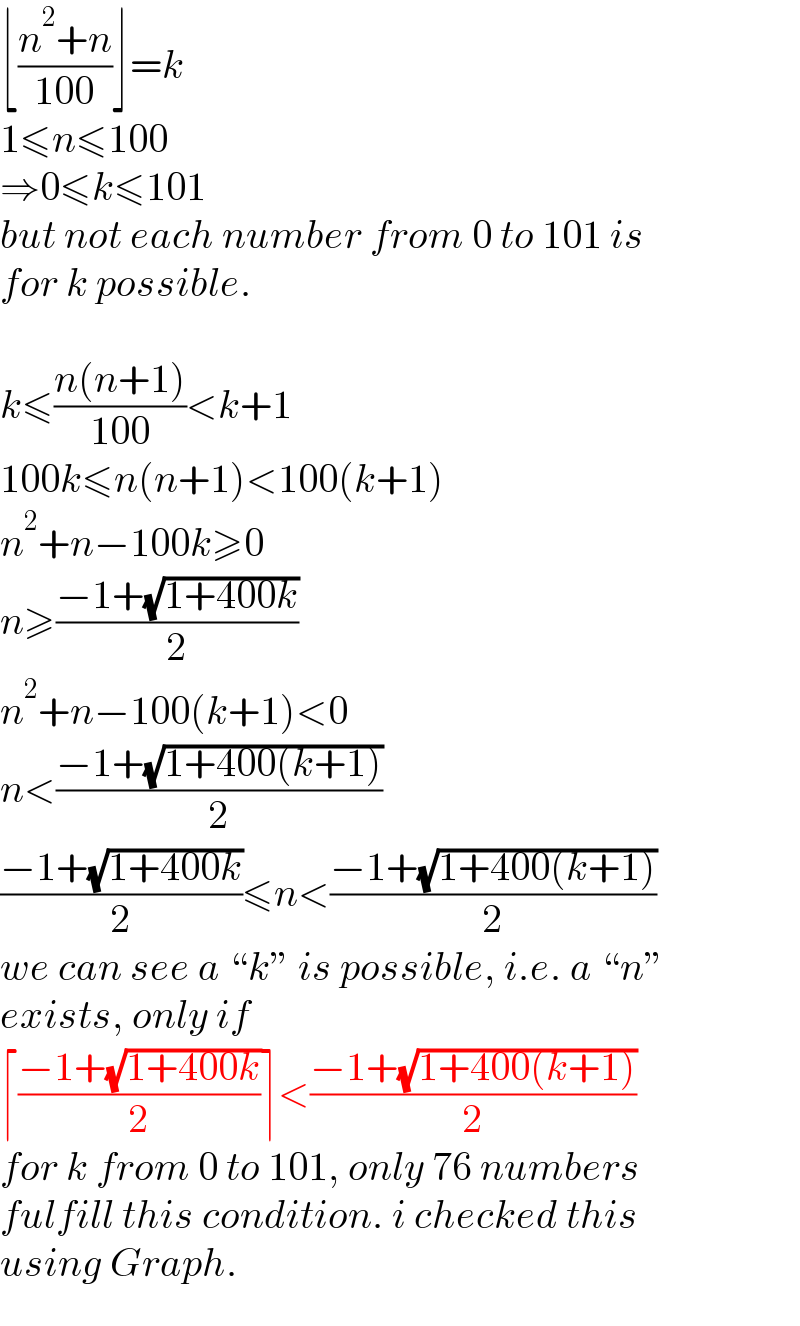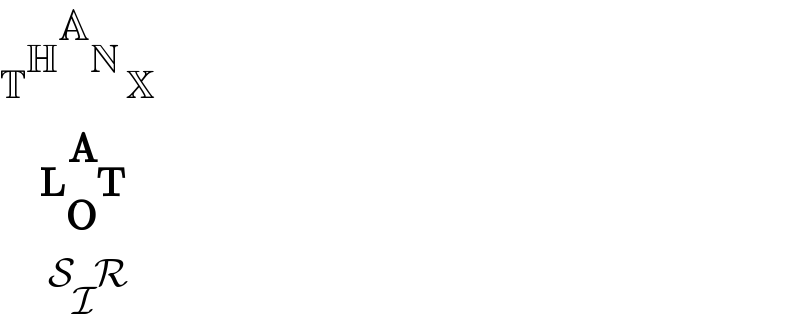
Question and Answers Forum
Question Number 176155 by adhigenz last updated on 14/Sep/22

Commented by Rasheed.Sindhi last updated on 14/Sep/22

Commented by mr W last updated on 14/Sep/22

Commented by Rasheed.Sindhi last updated on 14/Sep/22

Answered by Rasheed.Sindhi last updated on 14/Sep/22

Answered by Rasheed.Sindhi last updated on 16/Sep/22

Commented by mr W last updated on 15/Sep/22

Commented by Rasheed.Sindhi last updated on 15/Sep/22

Commented by mr W last updated on 15/Sep/22

Commented by Rasheed.Sindhi last updated on 15/Sep/22

Commented by mr W last updated on 15/Sep/22

Commented by mr W last updated on 15/Sep/22

Commented by mr W last updated on 15/Sep/22

Commented by Rasheed.Sindhi last updated on 15/Sep/22

Commented by Tawa11 last updated on 18/Sep/22

